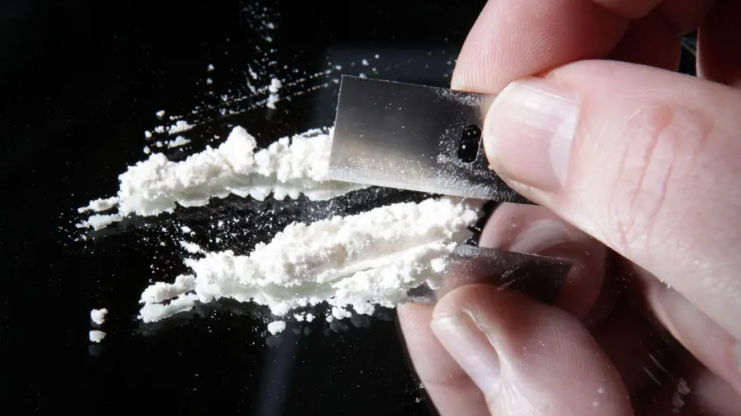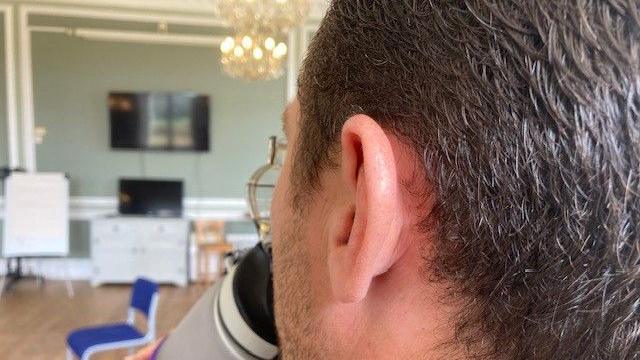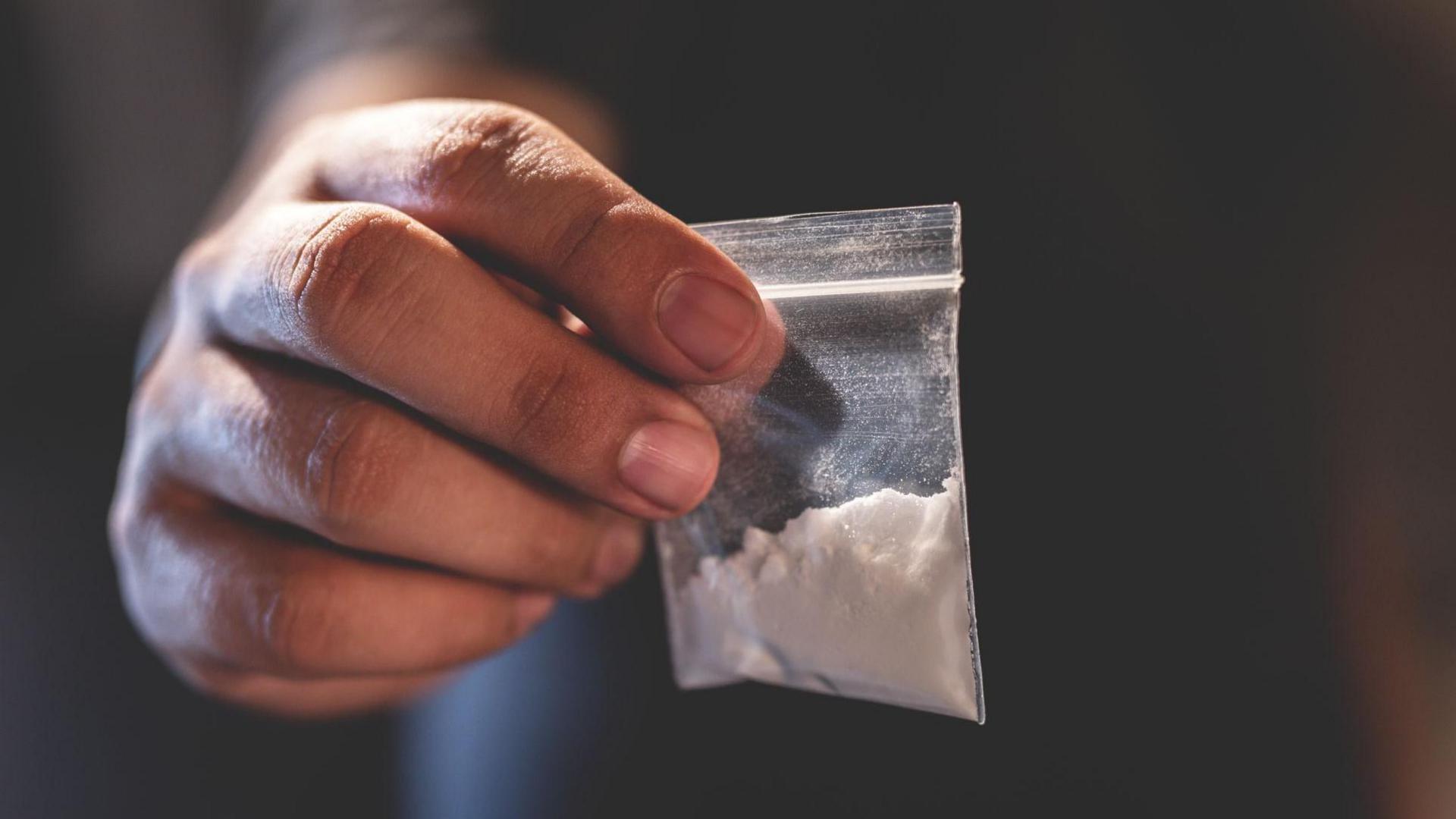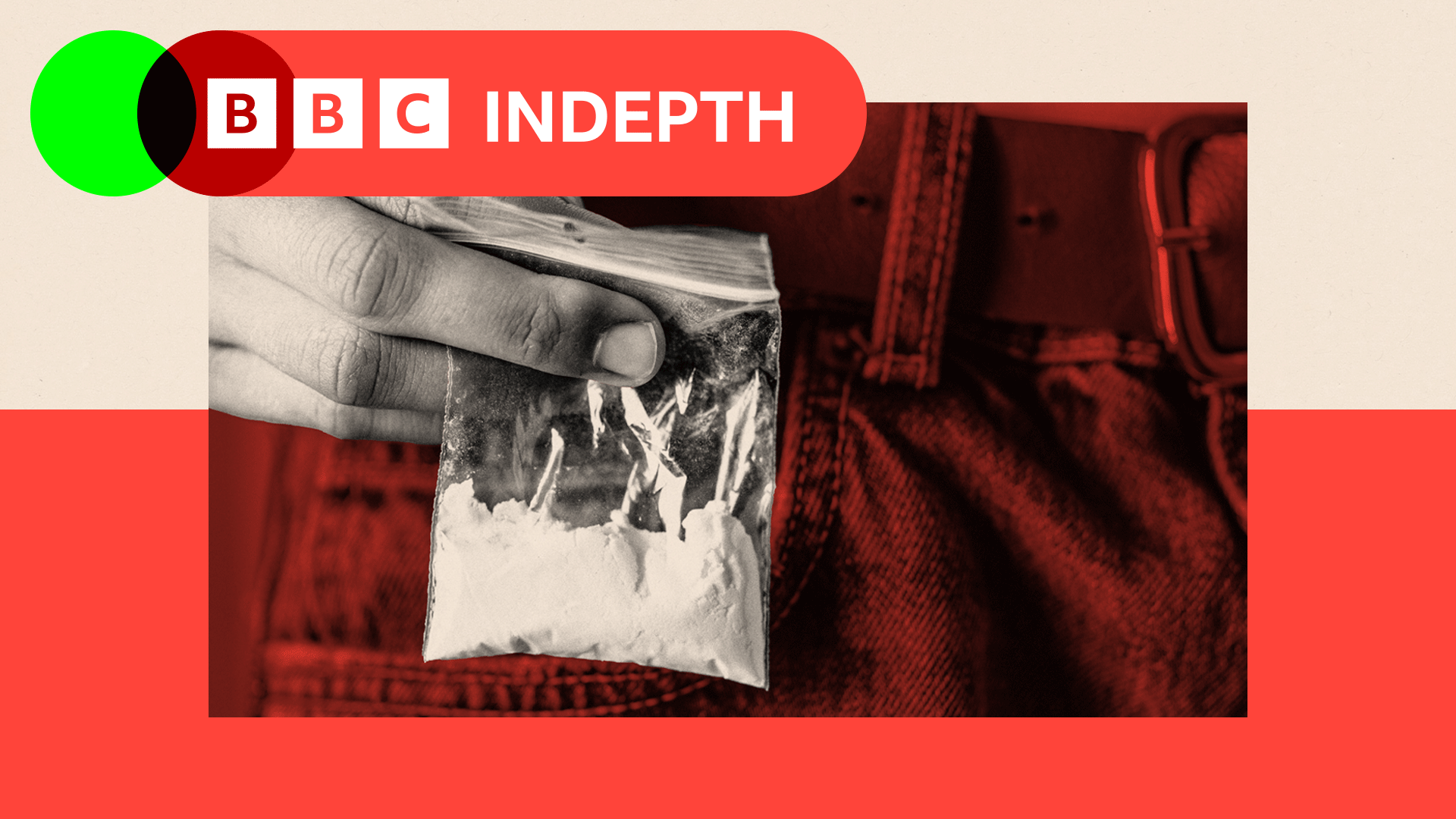'Ketamine ruined my life and left me in agony'

The number of adults in treatment for ketamine use in England and Wales has risen significantly since 2013
- Published
"It was like urinating shards of glass. I was in agony. An addiction to ketamine has ruined my life."
Nathan, who is now in recovery, says he can no longer work because of the pain he is in and how often he needs the toilet.
The 34-year-old from Kent is speaking out to warn others about the devastating damage the Class B drug can have on the bladder due to long-term use.
He is now clean, but after using ketamine for seven years he is worried about how many youngsters have started using it recreationally.
'Ruining their insides'
Nathan said he feared he might end up needing his bladder removed after long-term exposure to the drug.
"I've seen people at the age of 14 using this drug and having the problems I'm having, it's ruining their insides," he added.
He said he had a "horrible shooting, electric shock pain" down his legs and into his feet, which seriously affected his mobility.
"I used to be quite athletic, now I can't even walk properly some days and I'm struggling to get out of bed," he said.
The government has been seeking expert advice on whether to make ketamine a Class A drug.
Some campaigners don't believe that would deter users, but Nathan said he would back any reclassification so there would be a greater punishment for using it.
"I also think there needs to be more awareness about it and more doctors need to know about it," he said.
Ketamine is currently classified as a Class B drug under the Misuse of Drugs Act 1971, having been Class C until 2014.
The maximum penalty for unlawful import, supply and production is up to 14 years in prison, an unlimited fine, or both.
The maximum penalty for possession is up to five years in prison, an unlimited fine, or both.

Nathan is now in recovery after a seven-year battle with ketamine
Nathan is one of a growing number of patients with ketamine addiction being supported by the Kenward Trust, a Kent charity which provides rehabilitation for adults with addictions.
Mark Holmes, the registered manager, said the drug had become easier to access in recent years.
"It's very cheap compared to other drugs and we are seeing a lot of ketamine cut with other substances which is making it more harmful as well," he said.
Penny Williams, the chief executive, said the charity was stepping up its outreach to warn children about the drug.
"We're working to expand our education and early intervention programmes in schools, equipping young people with the knowledge and support they need to make informed, safe choices before addiction takes hold," she said.

Penny Williams from the Kenward Trust is doing more outreach in schools to warn pupils about ketamine
The WithYou service, which works with Kent County Council to provide drug and alcohol advice for under 25s, has also seen more evidence of ketamine use.
The number of youngsters needing support for using the drug has risen from 59 in 2019/20 to 108 in 2024/25.
Agnes Wootton, head of young persons' service delivery in the South, said: "Across our services, we are supporting young people - under the age of 25 - who have lost control of their bladders.
"This is likely to significantly impact their bodies for the rest of their lives.
"We have to make sure young people know the risks involved with ketamine, and change the perception that it's 'safe' to take."
What is ketamine?
Ketamine is widely used in the NHS as an anaesthetic, sedative and pain reliever, and is also commonly used on animals.
Chronic ketamine usage affects the lining of the bladder, and can shrink it.
This can lead to an increase in the frequency of needing to urinate, infections, bleeding, blockages and incontinence.
The drug came under the spotlight following the death of Friends actor Matthew Perry aged 54. A coroner found ketamine had been the primary cause.

Dr Belal says most patients he sees are aged 18 to 25, but some are even younger
Mohammed Belal, from the British Association of Urological Surgeons, said ketamine was a hard drug to treat.
"With chronic use the bladder becomes extremely inflamed, they have severe pain and then they take even more ketamine because it's a strong analgesic and this leads to a feedback loop where things can deteriorate very rapidly," he explained.
"If you stop early the bladder can recover, but if you leave it too late it becomes irreversible."
He said the majority of the patients he saw were aged 18 to 25, but some users were even younger.
The association has put together a document to help other health professionals spot the signs of 'ketamine bladder'.
Dr Belal is calling for more awareness, resources and dedicated clinics to address the "very serious issue" with a "holistic approach".
"We also need a further education programme in schools and universities highlighting the severe nature of this and also out in nightclubs and other places where people might take [ketamine]," he added.
A government spokesperson said the recent rise in Ketamine use was "deeply concerning".
"The Minister for Policing and Crime Prevention has requested advice from the Advisory Council on the Misuse of Drugs about reclassifying it as a Class A drug and will consider that advice carefully and quickly once received," they said.
In addition to the Public Health Grant (PHG), the department for health and social care is to provide £310m in additional targeted grants in 2025/26 to improve drug and alcohol treatment services and wider recovery support including housing and employment support.
If you have been affected by any of the issues raised in this article, you can find advice at BBC Action Line.
Follow BBC Kent on Facebook, external, on X, external, and on Instagram, external. Send your story ideas to southeasttoday@bbc.co.uk, external or WhatsApp us on 08081 002250.
Related topics
- Published7 January

- Published26 August 2024

- Published25 February
